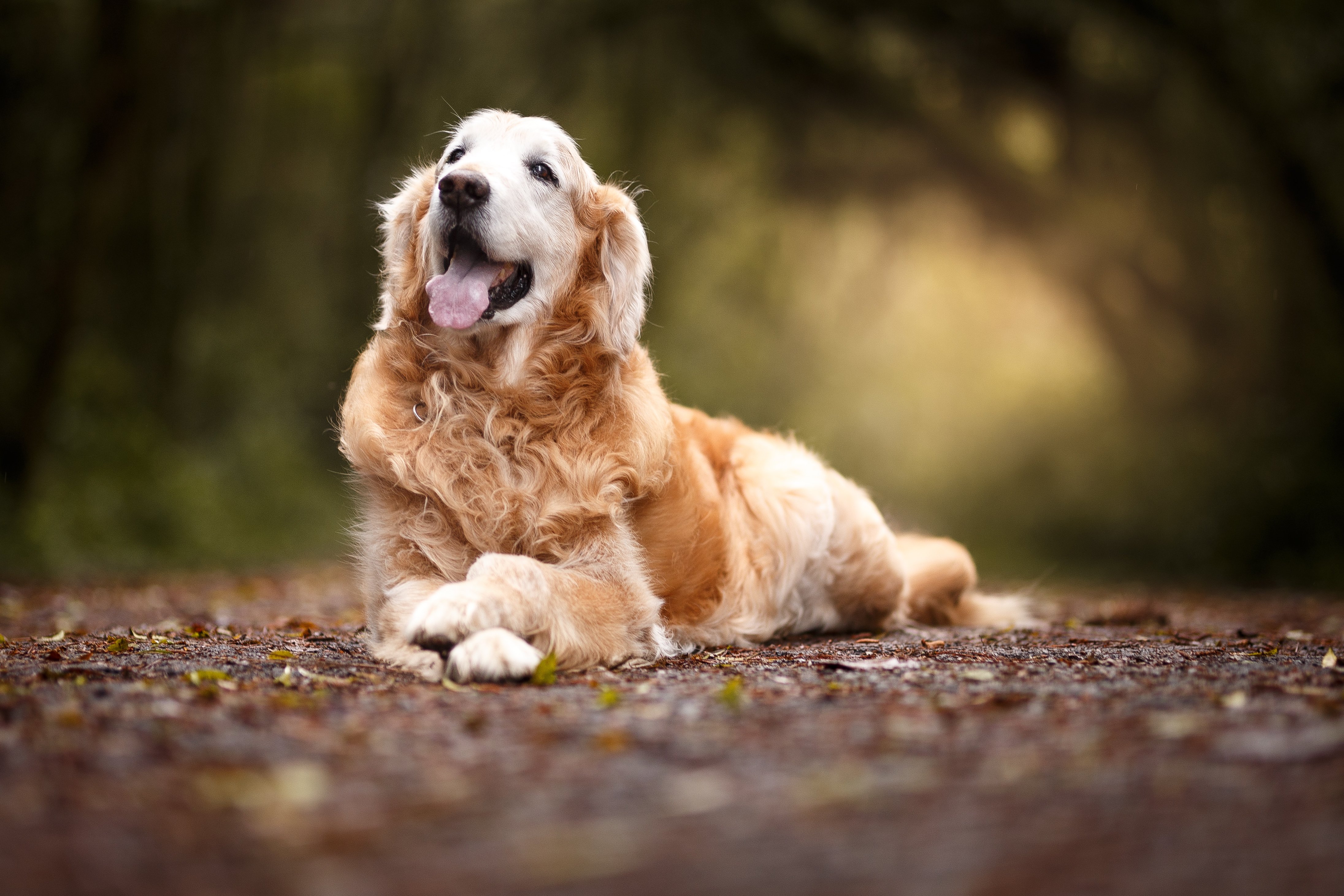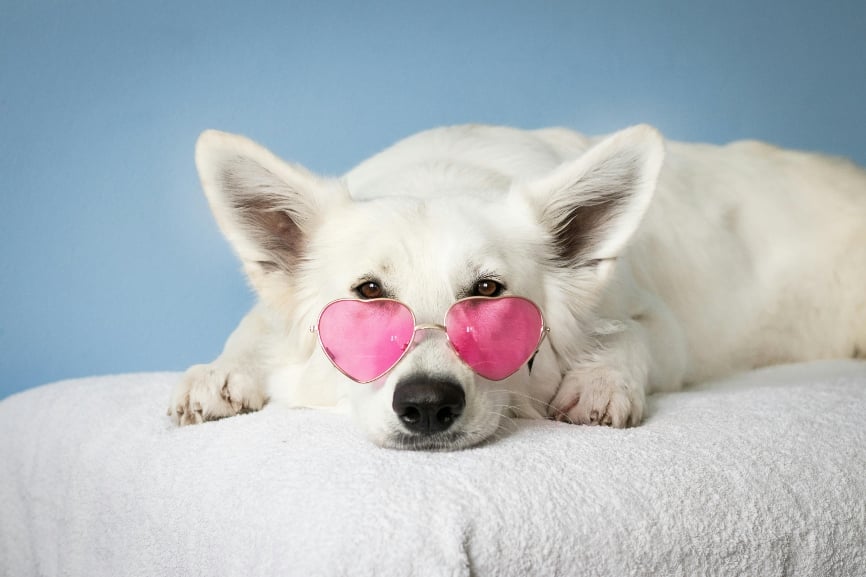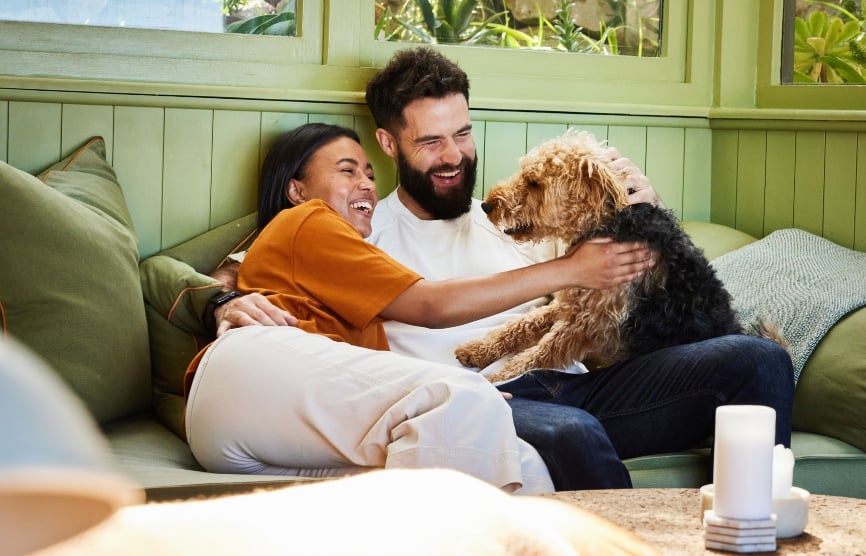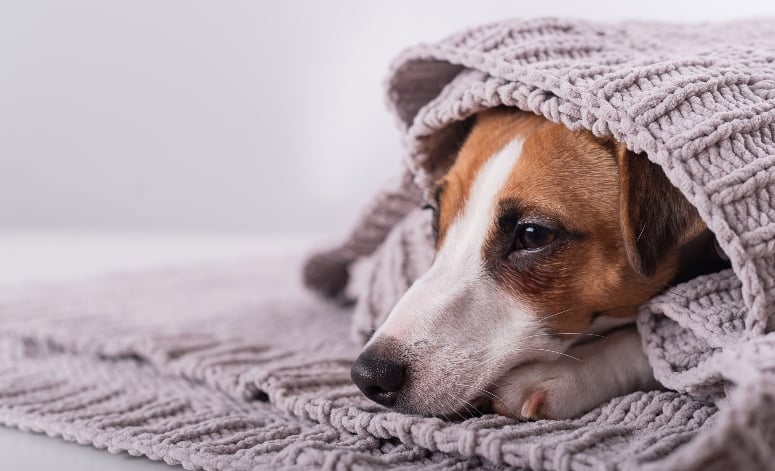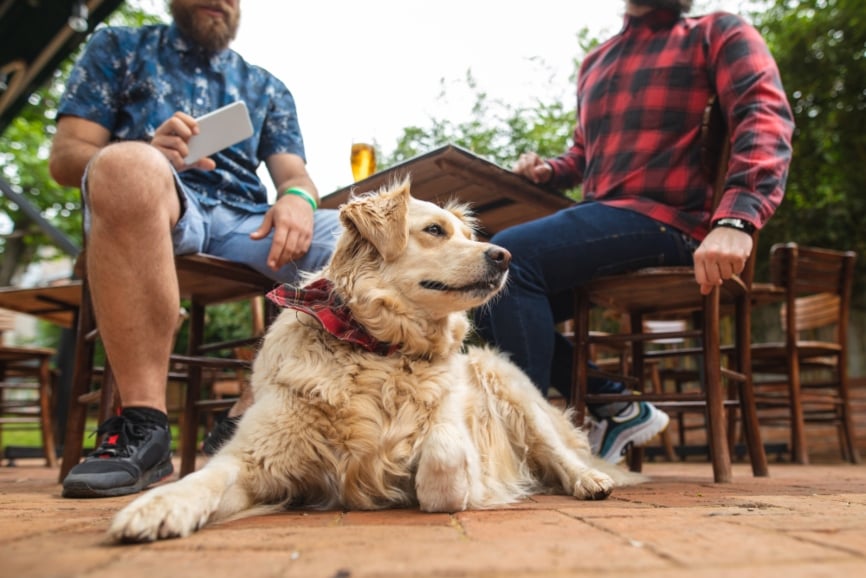Key Takeaways
- Older rescue dogs may not have been properly house-trained as puppies.
- Crate-training can help with house-training older dogs.
- You can keep your older dog on a leash inside your home to monitor behavior while potty-training.
- Keep feeding and bathroom schedules consistent with older dogs.
- A veterinary exam may be necessary to address potty training issues in older dogs.
Older rescue dogs can bring so much joy to their new pet parents. Like puppies, though, older dogs need proper house-training, starting from the day they come home.
Older rescue dogs may not have been house-trained as puppies. For example, they may have been kept outside or trained to only eliminate on puppy pee pads, and thus have little or no concept of house-training. Therefore, consistency, patience, and time will be needed to “untrain” previous potty behavior and train good potty behavior.
Fortunately, because older dogs can hold their bladders for a long time, it can be easier to house-train an older dog than a puppy. Still, house-training an older dog should be taken seriously to ensure the dog knows when and where to go to the bathroom.
Below are a few house-training strategies for older dogs:
Crate train your dog
Crate training often accompanies house-training. Crates give dogs their own space to relax when feeling stressed and provide a confined area for your dog when you’re away from home. Purchase a crate that allows enough room for comfortable movement (standing up, laying down, turning around), but not enough space for a separate ‘potty spot.’ Place some blankets on top of the crate to create a ‘den’ atmosphere and put some comfy blankets inside the crate.
During crate training, give your dog plenty of opportunities to exercise and play with you. Never use the crate as punishment.
Leash your dog
As an alternative to crate training, consider keeping your dog attached to you with a leash when you’re home to monitor his behavior closely. If your dog starts eliminating in the house or acts like he’s about to, give him a “no” command, take him outside, and immediately praise him with treats and happy talk when he finishes going to the bathroom.
Create a consistent feeding schedule
A consistent feeding schedule will keep your dog’s digestive system on a consistent schedule, too. Set a daily feeding time and put a time limit on eating—no free-choice feeding.
Create a consistent bathroom schedule
Accidents are much less likely when your dog knows the proper time to potty. Take your dog outside at set times throughout the day. Here’s an example schedule: after breakfast, your lunchtime, coming home from work, after dinner, and right before bed. If this is difficult for you, consider having a friend or dog walker take your dog out during the day.
During house-training, take your dog outside to the same spot to potty. Give him immediate praise when he finishes to positively reinforce him going to the bathroom outside, rather than inside.
Clean up accidents
Accidents are bound to happen when house-training an older dog. Clean up accidental urination with an enzymatic cleaner; the enzymes will remove the ammonia scent, preventing your dog from going back to that same spot.
Never punish your dog for an accident; this will instill fear in your dog and cause him to find another secret place to eliminate. If you catch your dog eliminating inside, distract him by saying something, take him outside, and praise him immediately after he finishes eliminating. If you don’t see the accident happen, clean it up and move on; dogs cannot make the connection between their behavior and subsequent consequences if more than a few minutes have passed.
Read your dog’s body language
Your dog may give you signals (e.g., pacing, pawing at the door) to indicate their need to potty. If you respond to these signals by taking your dog outside, your dog will learn to repeat those behaviors each time he needs to go.
Schedule a veterinary exam
If your dog is continuing to eliminate in the house despite your diligent house-training, he is not doing this out of spite, jealousy, or boredom. It is likely that your dog has a medical problem, such as kidney or gastrointestinal disease, that is causing inappropriate elimination. Rather than punish your dog, take him to your veterinarian, who can determine if there’s an underlying medical condition that needs treatment.
Potty training an older dog requires no shortage of patience, consistency, and time. When done right, potty training helps a dog learn how to behave appropriately in their new home. Always give your dog immediate positive reinforcement when they eliminate outside. If the potty training is not going as well as you’d like it to, contact your veterinarian for more guidance.
Content provided by JoAnna Pendergrass, DVM. Dr. Pendergrass is owner and founder of JPen Communications, a medical communications company specializing in consumer education.
If you love your pets like family, you want to protect them like family. By enrolling in pet insurance, you can save up to 90% on vet bills which means saying “yes” to life-saving treatments, no matter the cost. If you’re not a part of our pack, start by getting a free quote.
